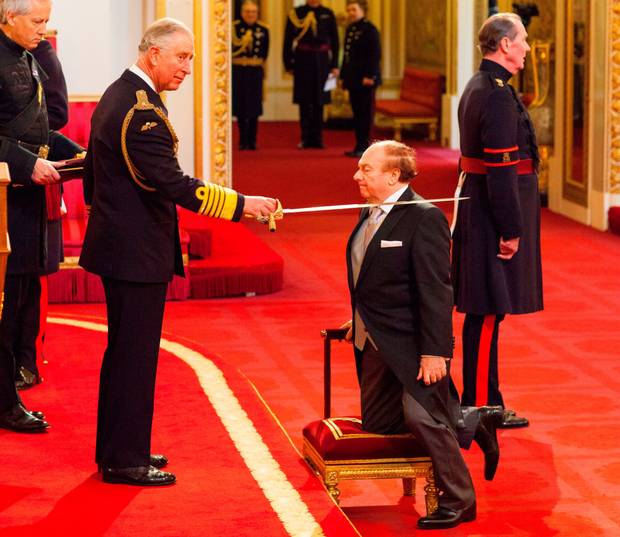Errors & Omissions: Here comes the knight, but leave the empire out of it
Errant titled folk and other confusions from this week's Independent

Your support helps us to tell the story
From reproductive rights to climate change to Big Tech, The Independent is on the ground when the story is developing. Whether it's investigating the financials of Elon Musk's pro-Trump PAC or producing our latest documentary, 'The A Word', which shines a light on the American women fighting for reproductive rights, we know how important it is to parse out the facts from the messaging.
At such a critical moment in US history, we need reporters on the ground. Your donation allows us to keep sending journalists to speak to both sides of the story.
The Independent is trusted by Americans across the entire political spectrum. And unlike many other quality news outlets, we choose not to lock Americans out of our reporting and analysis with paywalls. We believe quality journalism should be available to everyone, paid for by those who can afford it.
Your support makes all the difference.On Thursday, the musician Van Morrison went to Buckingham Palace to be dubbed knight by the Prince of Wales. We published a picture yesterday. The caption said he had been “made a Knight Bachelor of the British Empire”.
What has the British Empire to do with it? The rank of knight bachelor dates back to the Middle Ages, long before there was a British Empire. A knight bachelor is just an ordinary knight, an everyday medieval warrior, who is not a member of an organised order of chivalry.
England has one genuine medieval order of chivalry, the Garter, founded by Edward III in 1348, and a few later ones: the Order of the Bath (1725), the Order of St Michael and St George (1818), the Royal Victorian Order (1896) and the Order of the British Empire (1917). The caption writer seems to have confused a knight bachelor, which Sir Van Morrison is, with a Knight Commander of the Order of the British Empire.
µ Last week, I remarked that English has lost almost all its inflections for case, and that the nominative-accusative distinction is found only in personal pronouns – I/me, he/him, she/her, we/us, they/them.
Christopher Skillen writes to remind me that there is also the relative and interrogative pronoun who/whom. Yes, it should have been mentioned, but it is only fair to add that “whom” is not in good shape these days. Even in writing, “To whom shall I give it?” is starting to look literary. In speech, we all say: “Who shall I give it to?”
µ Here is a picture caption published last Saturday: “Former Republican Presidents Gerald Ford, Ronald Reagan and George H W Bush on Reagan’s campaign in 1980.”
Some people seem to think anything in the past must be labelled “former”. The caption could be talking about either 1980 or today, but in either case it is wrong to call all three men former presidents.
In 1980, Ford was a former president, but Reagan and Bush were future presidents. Today Bush is a former president, but the other two, being dead, are just presidents.
µ Alan Langley writes in to draw attention to a news story published on Monday: “In a damming report, Parliament’s Public Administration Committee said...”
The English language’s rich mixture of Romance and Germanic vocabulary does tend to throw up homophones. “Damn” comes by way of French from the Latin condemnare, while “dam” is from a Teutonic root. Was the report holding something back, asks Mr Langley. Quite.
µ This from an editorial on Thursday about the Syria talks: “These blood enemies… cannot be bullied into sitting down around a single table – this is UN moonshine of a very dubious value. Nothing is risked by labelling it as such. From this toxic maelstrom, peace must somehow be conjured.”
First we are contemplating the moonlight, then we are transported to a violent Scandinavian whirlpool. Then it gets even worse: the water is poisonous. Aren’t we getting rather carried away?
Join our commenting forum
Join thought-provoking conversations, follow other Independent readers and see their replies
Comments